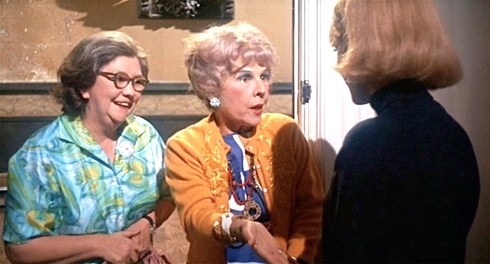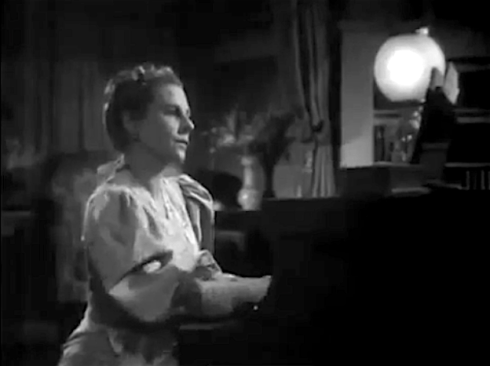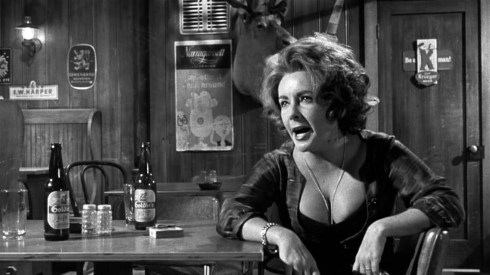It’s that wonderful time of the year when we all get to celebrate those unsung actors with loads of character, thanks to Aurora of Once Upon a Screen, Paula’s Cinema & Club & Outspoken and Freckled who are hosting the Fifth Annual WHAT A CHARACTER! BLOGATHON 2016… This will be my fourth time contributing to this fantastic event, having covered Jeanette Nolan, Burgess Meredith, and last year’s Agnes Moorehead. As many of you know, it’s often the actors on the periphery of some of our favorite films that fill out the landscape with their extraordinary presence, a presence that becomes not only essential to the story but at times become as memorable perhaps even larger than life when compared with the central stars themselves. I’m thrilled to be joining in the fun once again and am sure that it’s going to be just as memorable this year as ever before!

The ASTONISHING… RUTH GORDON!
“The earth is my body; my head is in the stars.”-Ruth Gordon as Maude

Maude: “A lot of people enjoy being dead. But they are not dead, really. They’re just backing away from life. *Reach* out. Take a *chance*. Get *hurt* even. But play as well as you can.”
I’ve been waiting to write about my love of Ruth Gordon for quite some time and felt that this would be the best way to get off the pot and just start singing those praises for this remarkable lady of theatre, film, and television. Ruth Gordon in so many ways channeled her true personality through the character of Maude, in life –she too always projected a spirit that played as well as she could…


“Choose a color, you’re on your own, don’t be helpless.” –Ruth Gordon -An Open Book
There’s a vast dimension and range to Ruth Gordon’s work both her screenwriting and her acting, the effects leave a glowing trail like a shooting star. With her quirky wisdom and sassy vivacity that plucks at your heart, Ruth Gordon stands out in a meadow of daisies she is emblazoned as bright and bold as the only sunflower in the field. No one, just no one has ever been nor will ever be like this incredible personality.
For a woman who is impish in stature, she emanates a tremendous presence, a smile like the Mona Lisa, sporting a unique and stylish way she expresses herself with a poetic & fable-like language. Ruth Gordon is a character who dances to a different rhythm — how she sees herself and how she performs *life* is uniquely mesmerizing as it is burgeoning with all the colors of the universe.


Ruth Gordon is a dramaturgical pixie, with a curious hitch in her git-along… an impish dame who rouses and fortifies each role she inhabits with a playful, mischievous, and almost esoteric brand of articulation.
In a field of different daisies Ruth Gordon is that sunflower that Maude soliloquies poetically to Harold —
Maude-“I should like to change into a sunflower most of all. They’re so tall and simple. What flower would you like to be?”
Harold-“I don’t know. One of these, maybe.”
Maude-“Why do you say that?”
Harold-“Because they’re all alike.”
Maude-“Ooooh, but they’re *not*. Look. See, some are smaller, some are fatter, some grow to the left, some to the right, some even have lost some petals. All *kinds* of observable differences. You see, Harold, I feel that much of the world’s sorrow come from people who are *this”, (pointing to a daisy) yet allow themselves to be treated as *that*.” (she gestures to a field of daisies)
From the Arlene Francis 1983 interview with Ruth Gordon– actress, screenwriter and playwright…
Ruth Gordon 1975 photo by Alfred Eisenstaedt
Ruth Gordon never wanted to be told how to write nor be instructed on how to act… from her autobiography An Open Book- “I don’t like to be told how to act either. When I’m left alone thoughts come… ‘Don’t try to think’ said our New England philosopher, Emerson, leave yourself open to thought. If you find out stuff for yourself, you get to know what you believe; what you like, how to live, how to have a good time. It’s important to have a good time.”
from Hugh Downs Interview
" I did grow up to have character. And I'm always doing some damn thing that uh I don't wanna do but I know it's right to do. And I finally thought of something in my next book and I'm gonna have it in there and it's a very important thing to remember. Just because a thing is hard to do doesn't make it any good. You tackle something and you work at it and slave at it and say now I'm gonna do this I'm gonna do it and when you've done it better think it over and see if it was worth it"¦ some easy things like falling off a log and stuff those easy things probably just as good but a New Englander has to do it the hard way. "
Arlene Francis "You once said "˜never face facts' how can you avoid it?"
Ruth Gordon-"Oh my god look, we're not facing facts now surely cause I might dry up and not have a thing to say in the world and then where would you be, you know"¦ ["¦] it would be stupid there are enough hazards in the world, I'm 85 now and I'm at my very best peak of my looks which might be an interesting thing to anybody because you figure, 18 why wouldn't I be better looking than now?…Â "Don't lets anyone tell their symptoms, it would be the most boring thing, even though everybody has so many"¦ so the "˜don't face your facts' is if you face what's the matter with you, you know we'd open a window and say goodbye everybody like tinker bell and take off and hope you could fly (she laughs) Don't face the facts you know, I was 18 years old I was going on the stage didn't know anybody in New York and I didn't know anybody on the stage, and I wasn't beautiful and I wasn't tall which everybody was in those days, and uh I didn't have any money and how was I gonna do this, so if I didn't ‘not face those facts’ I'd say too bad she wanted to be an actress"¦"
Ruth Gordon, who always dreamed of becoming a ‘film’ star, beside an astonishing stage presence talks about winning awards for her work–" The main award that I really value is the award I give myself and people say Oh you don't know when you're good you know, the audience knows, people know but you don't know Well that's stupid I know when I'm good for myself You might not like it, they might not like it, the public might not like it, but I know that wonderful performance that doesn't happen too often, when anticipation and realization come together because that night when it's all perfect and is great and you know "¦ that you've just taken off"¦ that's my award"¦"Â
Ruth Gordon is bold and vibrant and an actress who never shied away from taking the quirkiest and most eccentric roles. From irreverent Ma in Every Which Way But Loose (1978) and the poignant Becky Rosen in Boardwalk (1979) to the perspicacious Maude in Harold and Maude (1971) George Segal’s Tushy biting batty mother-Mrs. Hocheiser in Where’s Poppa? (1970) and of course the queen of campy kitschy New York City’s enigmatic coven hostess with the mostest– Minnie Castevet in Rosemary’s Baby (1968) …


Minnie is perhaps one of the most vividly colorful film characters with her sly and farcical mispronunciations and a wardrobe that is distinctly tacky. Part cosmopolitan part menacing, no one could have performed Minnie Castevet quite like Ruth Gordon, that next-door meddling neighbor who befriends an American housewife, who is secretly waiting to become the godmother to the devil’s unborn son.


Gordon appears as if she was cut from a mold that makes her seem like a rebel to the inner workings of Hollywood. And as extremely unconventional as she can be, there is always a depth and authenticity to the wackiest of characters she’s portraying. From the lyrically loving and life-devouring Maude in Hal Ashby’s different style of love story.
" Well it's a very good movie, I was absolutely wonderful Collin Higgins wrote a great movie Bud Cort was sensational, Hal Ashby became one of the top directors so how do you account for that, well it just happened. But, you see, some guy in Cambridge Mass. he wrote from the YMCA he wrote me a letter and he said, "˜I've seen Harold and Maude' I don't know how many times he'd seen it, and he said I'm at a loss to know why it means so much to me and I think about it , I think about it a lot and I finally came to the conclusion that it's because to get through life you have to have somebody to tell it to' that's a very profound remark. I've had lovers I've have friends I've had family and I didn't exactly tell it to them but Garson Kanin I tell it to him whether it's bad whether I'm a failure whether I'm going grey. Somebody to tell it to. And it's a very very necessary part of life. And in Harold & Maude Harold who was a kind of helpless geek with looks riches money everything he had "¦ except knowing how to live. And Maude who didn't have anything except she knew how to live. And Harold could tell it to her. he could tell it to her. She didn't always have the answer. But he could pour it out. And so it was wonderful really, just pour it out, I said once even if I'm wrong agree with me because you know to Gar, have somebody you know would stand up for you."
Ruth and husband Garson Kanin… super writing team!
Bud Cort remained very close friends with Ruth Gordon. Here he is talking about her tremendous influence on This is Your Life television show honoring the extraordinary actress/writer.
Ruth Gordon and Hal Ashby on the set of Harold and Maude 1971.
from the Dick Cavett interview from September 19, 1969 expressing how if you had never seen Ruth Gordon on the stage “You would lament that fact"¦ a lady who is one of the incomparable ladies of American Theatre. There have been cults about Ruth Gordon for years and years and years. When great performances on Broadway are discussed, Laurette Taylor in The Glass Menagerie or Mildred Dunnock in Death of a Salesman, or Vivien Leigh or any of the classics are referred to Olivier in Oedipus, Ruth Gordon in *The Matchmaker* is always brought up as one of the masterpieces of all time. And she has been a wondrous presence in the theatre for over 50 years. Splendid comedian and a splendid comic writer."
Ruth Gordon began to hone her craft and push the range of her acting ability which she revealed in Edith Wharton's Ethan Frome, the restoration comedy The Country Wife in which she appeared at the influential theater–London's Old Vic. She eventually found her way to Broadway and landed a role in Henrik Ibsen's A Dolls House during the 1930s.
Severely bow-legged, in 1920 she spent time in a hospital in Chicago where she had her legs broken and straightened.






Â






Stella Bernard: (Ruth Gordon) “You lied to me, Miss Greene. You permitted me to believe your father was dead.”
Barbara Ann: (Tuesday Weld) “Well, they’re divorced.”
Stella Bernard: (Ruth Gordon) “In our family we don’t divorce our men; we *bury* ’em!”






from director Hal Ashby’s Harold and Maude (1971).

A 79 old woman and a twenty-year-old lost soul meet at a funeral and find love and life together in a darkly light comedy. Bud Cort creates an iconic figure of a young privileged young man disillusioned by life, who gets a kick out of antagonizing his priggish mother Mrs. Chasen (Vivian Pickles) with creative faked suicides. Once Harold is exposed to the wisdom and insight that Maude imparts, she manages to open up his heart and teaches him how to reach out and embrace the substance of life’s beauty.




Every Which Way But Loose 1978.

Ruth Gordon plays the impertinently, uninhibited Ma to Clint Eastwood as trucker Philo Beddoe & Orville (Geoffrey Lewis) who travel around the West Coast looking for street-style prize fights. Along for the ride are Beverly D’Angelo as Echo, and evasive love interest Sondra Locke as country singer Lynn Halsey-Taylor. There’s a hilarious assorted misfit motorcycle gang member and Philo’s pet Orangutan Clyde who’s always stealing Ma’s Oreo cookies!

co-staring with Lee Strasberg in Boardwalk 1979.



Lee Strasberg plays David Rosen and Ruth Gordon portrays his wife Becky who own a wonderful little diner, a loving older couple who have lived in their Coney Island Jewish neighborhood for 50 years until a gang moves in and changes the communities quality of life by threatening the local store owners with violence if they don’t pay ‘protection’ money. When David defies them, they burn down the diner and desecrate the synagogue. Janet Leigh also co-stars as Florence Cohen.
Ruth Gordon manifests a marvelously warm and poignant chemistry with master actor/teacher Lee Strasberg.










Ruth Gordon as mystery writer Abigail Mitchell: I accept all superlatives.
Ruth Gordon also had the distinguished honor of hosting Saturday Night Live in 1977.

“She had a great gift for living the moment and it kept her ageless.”Â
"” Glenn Close
Ruth Gordon had quite a unique way of expressing herself on stage, screen, and in person, and as Dick Cavett had said about the great actresses’ ability to always project her incomparable persona, what we get! – "It's a lesson in something that only Ruth Gordon can teach." And as she would say, she had “a lot of zip in her doo dah.”Â
I’ll end by saying this about this astonishingly iconic character whose sagacity and spark will never dim when asked that particularly interesting question, ‘If you had 3 people you could meet in Heaven who would you choose?’ Ruth Gordon, you would be one of them!- With all my love, MonsterGirl

















































































![Anna Lucasta (1958) | Pers: Eartha Kitt, Sammy Davis Jr | Dir: Arnold Laven | Ref: ANN040AE | Photo Credit: [ United Artists / The Kobal Collection ] | Editorial use only related to cinema, television and personalities. Not for cover use, advertising or fictional works without specific prior agreement](https://i0.wp.com/thelastdrivein.com/wp-content/uploads/2015/07/tumblr_lvnaeyvi341r1a8w8o1_500.jpg?resize=490%2C589&ssl=1)





